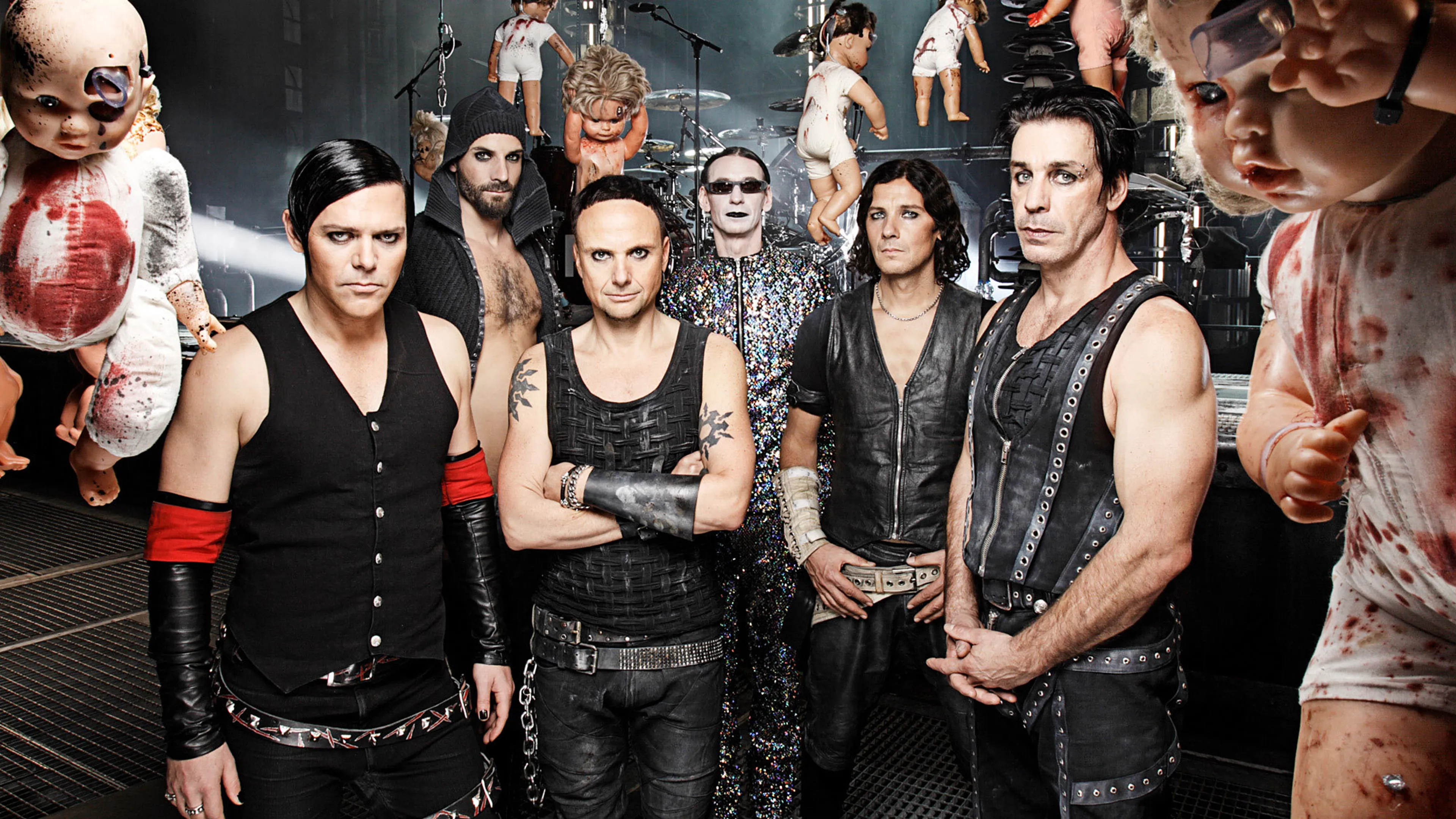Few bands have found their way to the top of the musical mountain without, at one point or another, finding themselves serving the whims of fashion and popular taste. Rammstein, however, have plotted their own path, far from the homogenous mainstream, using their various kinks and peculiarities as hooks with which to haul themselves into stadia. Children of the Neue Deutsche Härte (New German Hardness) dance metal movement of the 1990s, the Berliners have bolted on elements of chugging industrial, latex-clad gothic and hard rock bombast to reinforce an inherently theatrical package unlike any other in heavy music.
This singular sense of direction has been reinforced by a line-up that has remained stable since 1994. Multi-talented frontman Till Lindemann (a talented swimmer shortlisted for the 1980 Olympics, but scuppered by injury) has always been the block-headed face of the band, yet every member has become integral. Guitarists Richard Kruspe and Paul Landers, bassist Oliver Riedel, drummer Christoph Schneider and brilliantly weird synth specialist Christian “Flake” Lorenz all play their part and have attained varying degrees of celebrity in their native Germany.
Their back-catalogue boasts a similar consistency. With every track striving for a visceral emotional reaction, however – be that busting moves on the dancefloor, getting rhythmically turned-on or feeling stomach-churningly disgusted – there’s a particular pleasure in ranking our Top 20 listening experiences. Let’s hear yours in the comments.
